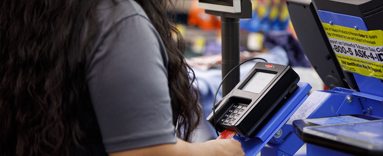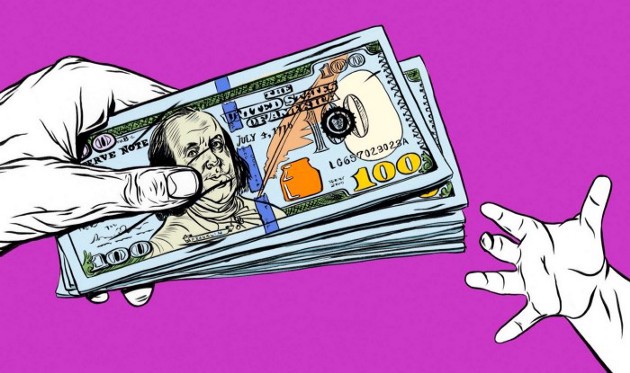Pandemics have always managed to trigger revolutionary changes in the way people pursue their lives. For the past nine months, I do not recall a single instance where I touched a coin or banknote, instead, I relied exclusively on electronic payments systems and credit cards for all my purchases.
I believe I am not alone.
Global online merchants like Amazon have experienced outstanding growth and have shifted to a system of delivering goods directly from their warehouses. Even businesses that have resisted credit cards within parts of Asia for decades are welcoming ‘digital payments’.
Throughout much of human history, physical money has evolved from tokens connected to goods at warehouses to precious metals to promissory notes and now into paper and plastic notes backed by central banks.
Basically, any “legal tender” backed by faith can be used as money.
The novel coronavirus is forcing societies to ask whether we have outgrown the need to carry “physical money”. The developed economies certainly have the technology to pay for all transactions in a digital manner through highly secure biometric authentications in addition to PINs and digital signatures.
If a 100% shift is made towards a digital payment mechanism for all the citizens, no one would feel the need to carry “coins or cash”, but many people are still curious as to how it might affect their privacy even as most people continue to disclose their spending habits on Amazon and Facebook!
China’s central bank introduced the “digital yuan” as a pilot scheme across four of its states recently. It will be the world’s first major economy to issue a “national digital currency” or in more technical terms a “Central Bank Digital Currency” (CBDC).
At the moment, people all around the world can hold money issued by their respective central banks’ in the form of banknotes, while banks and certain other non-banking financial institutions can hold “central bank electronic money” as ‘reserves’.
Households and businesses can use this form of electronic central bank money to make payments and store value.
In simple terms, it is a “digital banknote” that can be used just like paper money to provide for goods and services using a digital payment platform.
On top of that, unlike privately owned corporations who distribute the technology for digital cash transfers, like credit cards and mobile payments, for example, the “digital banknote” will be the state’s liability, just like cash. This could create new opportunities for the payments industry and the way central banks maintain monetary and financial stability.
The “digital banknote” can eventually replace all cash in circulation, but is a third world country like Bangladesh prepared for the transition?
In developed nations such as Sweden, 87 percent of all transactions occur digitally through private payment companies, and for the likes of advancing nations like China, more than half a billion people possess smartphones enabling them to provide for goods and services using mobile payments.
Even in this day and age, mobile phones and laptops are deemed to be “luxury goods” in countries like Bangladesh.
The notion of a “national digital currency” is still in its infancy in countries like Bangladesh. The process of utilizing “Blockchain” through implementing “Distributed Ledger Technology” (DLT) is something many are still working on in Bangladesh. Blockchain, bundles transactions into blocks which are then chained together and broadcasted to the nodes in the central network.
This central network is better known as DLT. It’s the technology that powers the likes of bitcoin and other cryptocurrencies.
The public aspect of blockchains generally implies that anyone can use blockchain while serving as a validating node to the system. Anyone assigned as a node can in return, act as part of that blockchain’s governance mechanism. Thus theoretically, blockchains are decentralized and resistant to undue control or influence from any single party.
In contrast, a distributed ledger generally doesn’t enable most of these public features. It can impose restrictions on its users which is why it is often referred to as a “permissioned network”. It restricts who can operate as a node and in most cases, governance decisions are left to a single centralized party.
The conflict of interest between banks, big businesses, and the government should now appear to be crystal clear.
If any particular government, wants to impose a “centralized digital banknote” system combining the permissioned network feature of DLT’s and the payment mechanism of blockchain, it would mean that there would be no need for banks to act as intermediaries! If they fail to obtain deposits, they simply cannot issue any form of loans, and for big banks that finance most parts of “Rising Asia”, this could wreak havoc.
People would simply utilize blockchain for transaction purposes, without having to deposit their savings with commercial banks. Only the central issuer of the “digital banknote” monitoring the system, would have all the required data to facilitate such transactions.
In most cases, this would imply one large state-owned entity. Thus, the need for banks as intermediaries would be eliminated, driving them out of business.
Even if we exclude the idea of thousands of people losing their jobs at their local bank branches due to implementing DLT, Bangladesh has an even bigger problem going cashless: a large percentage of the population is still not associated with any kind of banking service!
In 2013, around 20 percent of the population had access to some form of banking service. As of 2019 around 65 percent of the population have resorted to using mobile financial services.
Although the jump in the number of people coming under the financial net has increased significantly, many of those still don’t have a basic bank account. The stringent KYC requirements discourage most of the population from even stepping inside one of their local bank’s branches.
Banks need to cater to these people, come up with financial products that will address their needs. In addition, transaction costs need to be minimized. According to recent reports, mobile banking costs are Tk 18.50 per Tk 1,000 being cashed out. Such schemes will further discourage the ones on the brink of poverty to use such services.
One of the greatest threats hampering the growth of developing nations is the middle-income trap, whereby crony capitalists can simply slow down growth with the aid of oligarchs. Thus financial inclusion can be a key step to improving essential public services by removing any form of hidden charges imposed by middlemen whatsoever.
The idea of a “national digital currency” would minimize costs associated with excessive ATMs and bank branches eventually leading them to become obsolete. The earnings of an individual would deposit directly into their wallets which can then be spent accordingly. It will enable to eliminate the hassle of overpaying for microloans as the time lag to pay for them would decrease, reducing interest payments.
Every business could have a digital ledger of its cash flow and sales, making it more difficult for employees or middlemen to embezzle cash because customers would pay directly into the seller’s digital wallet. Many enterprises would be far more visible in regards to paying their sales and income taxes.
India’s demonetization scheme did add 9 million taxpayers but the mass disruption it caused resulted in 8.8 million taxpayers to completely exit the banking channel.
Despite its sole purpose to curb corruption and reduce terrorist financing, demonetization did not necessarily force the ultra-rich to pay their fair share in taxes. Instead, it created hours wasted at the bank, financial uncertainty for the most vulnerable, lost wages, and cost at least several innocent lives.
But why is the policy still very popular in India among those who personally paid its costs?
Similar to Xi Jinping’s consolidation of power in China, Modi successfully solved a part of the riddle that dealt primarily with monetary unfairness in India to ultimately gain political support.
Thanks in part to the popular belief that demonetization was a collective sacrifice to force the rich to pay their dues to support the underprivileged, it was all disguised under the false umbrella of patriotism.
Given the public interest in preserving privacy and helping marginalized groups, there is a case for government intervention which has given rise to organizations such as Nagad but while countries like China have already gone from “paper to bytes”, Bangladesh is still focusing on expanding its bank branches.
The number of people who still believe in paper money is quite substantial. Most parts of the country don’t have people with access to either mobile phones or electricity.
Banks aren’t willing to go out of business and the government can certainly not risk people losing their jobs and a reduction in direct and indirect taxes which these big banks provide them with. People are still not open to the idea of disclosing all their personal data and most of the IT infrastructure isn’t updated on a regular basis to fight financial crime.
Putting regulations aside, the rise of digital wallets could also threaten banks’ access to the deposits they need for loan origination and servicing.
Thus, even if the idea is implemented, executing it would be extremely difficult. The current infrastructure and unequal access to technology will make the most vulnerable unable to reap the benefits.
This article was originally published By S I Ahmed, medium.com.










